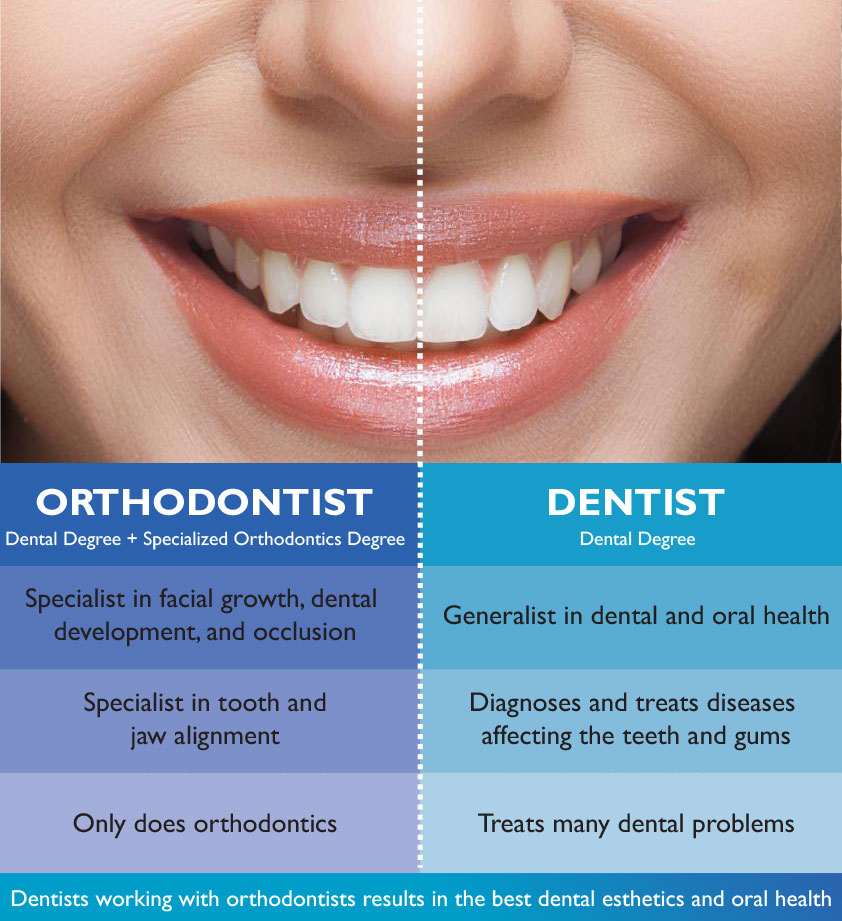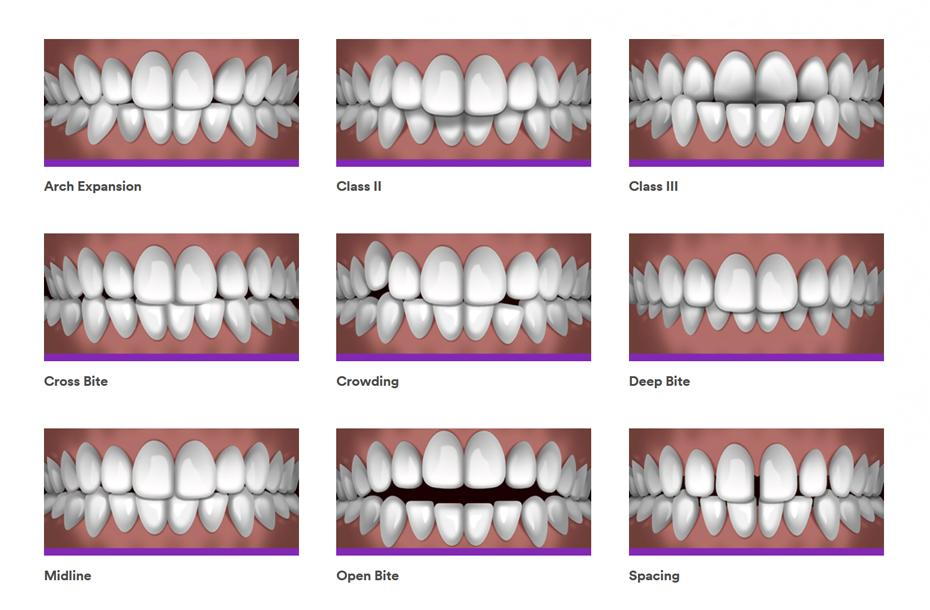The Of Causey Orthodontics
The Of Causey Orthodontics
Blog Article
The 10-Second Trick For Causey Orthodontics
Table of ContentsThe Single Strategy To Use For Causey OrthodonticsNot known Facts About Causey OrthodonticsSome Ideas on Causey Orthodontics You Should KnowEverything about Causey OrthodonticsCausey Orthodontics Can Be Fun For AnyoneThe 5-Second Trick For Causey Orthodontics4 Simple Techniques For Causey Orthodontics
What is the difference between a dental professional and an orthodontist? To answer a question that is frequently asked, both dental professionals and orthodontists help patients obtain far better dental health and wellness, albeit in various means. It helps to bear in mind that dental care is a rather wide scientific research with various clinical expertises. All dental practitioners, consisting of orthodontists, deal with the teeth, gum tissues, jaw and nerves.
You can believe of both medical professionals who treat gum and teeth troubles. The main difference is that ending up being an orthodontist needs a certain specialized in dealing with the imbalance of the teeth and jaw.
How Causey Orthodontics can Save You Time, Stress, and Money.
An orthodontist is a dental expert that has undergone training to specialize in the diagnosis, avoidance and treatment of abnormalities in the jaw and teeth. They can also recognize prospective problems in teeth alignment that might establish when conditions are left unattended (family orthodontics).
This includes all the required education and learning to end up being a basic dental expert. According to the American Student Dental Organization (ASDA), it implies you will certainly need to have either a Doctor of Medication in Dental Care (DMD) or a Medical Professional of Oral Surgery (DDS). In other words, orthodontists require to complete oral institution and after that get an orthodontics specialty education and learning.
Some orthodontists additionally get their masters in craniofacial biology. These programs focus on two particular areas or self-controls: Dentofacial Orthopedics: This research study focuses on assisting teeth and jaw growth.
Rumored Buzz on Causey Orthodontics

 These include device such as braces, retainers and Invisalign. What does an orthodontist do, and what do they concentrate on? The overall goal of an orthodontist is to improve a person's bite. Not everyone is birthed with straight teeth, and an orthodontist will make certain that patients get evenly spaced straight teeth.
These include device such as braces, retainers and Invisalign. What does an orthodontist do, and what do they concentrate on? The overall goal of an orthodontist is to improve a person's bite. Not everyone is birthed with straight teeth, and an orthodontist will make certain that patients get evenly spaced straight teeth.
The Greatest Guide To Causey Orthodontics
The American Association of Orthodontists advises your initial check up by age 7. You'll require to see your orthodontist if you have an imbalance in your teeth, also understood as malocclusion. If you see uneven bite patterns, a slightly twisted jaw, or when your teeth are chock-full, you will likely need orthodontic treatment.
In enhancement, we provide adjustable treatment routines, adaptable settlement alternatives and a fun, delightful experience.
An orthodontist is a dental professional trained to diagnose, prevent, and treat teeth and jaw abnormalities. They correct existing problems and are educated to determine troubles that might establish in the future. Orthodontists function with individuals of every ages, from kids to grownups. Individuals usually associate a best smile with health.
The smart Trick of Causey Orthodontics That Nobody is Discussing
Malocclusion, or misaligned teeth, can cause dental concerns, consisting of dental caries, gum tissue disease, and challenging or excruciating eating. But not everybody is birthed with straight teeth. If you have a negative bite or huge spaces between your teeth, you may want to consult a dentist concentrating on orthodontic treatment.
(Image Credit Scores: DigitalVision/Getty Images) Orthodontists utilize fixed and removable dental devices, like braces, retainers, and bands, to transform the position of teeth in your mouth. Orthodontic treatment is for oral abnormalities, including: Uneven teethBite problems, like an overbite or an underbiteCrowded teeth or teeth that are too much apartJaw misalignmentThe goal of orthodontic treatment is to enhance your bite.
Excitement About Causey Orthodontics

All orthodontists are dentists, but not all dental professionals are orthodontists. Orthodontic residency programs provide extensive, focused direction for dental professionals. They concentrate on 2 areas: Exactly how to properly and safely move teeth Exactly how to appropriately lead development in the teeth, jaw, and faceOnce an orthodontist has completed training, they have the alternative to come to be board accredited.
Misalignment, or malocclusion, is one of the most usual reason people see an orthodontist. It is hereditary and is the outcome of size differences in between the top and lower jaw or in between the jaw and teeth. cheapest orthodontist near me. Malocclusion results in tooth overcrowding, a misshapen jaw, or uneven bite patterns. Malocclusion is normally treated with: Your orthodontist connects steel, ceramic, or plastic square bonds to your teeth.
Rumored Buzz on Causey Orthodontics
If you have just minor malocclusion, you may have the ability to use clear dental braces, called aligners, instead of conventional braces. Some people require a headgear to help relocate teeth into line with stress from outside the mouth. After braces or aligners, you'll require to wear a retainer. A retainer is a personalized device that maintains your teeth in position.
Report this page